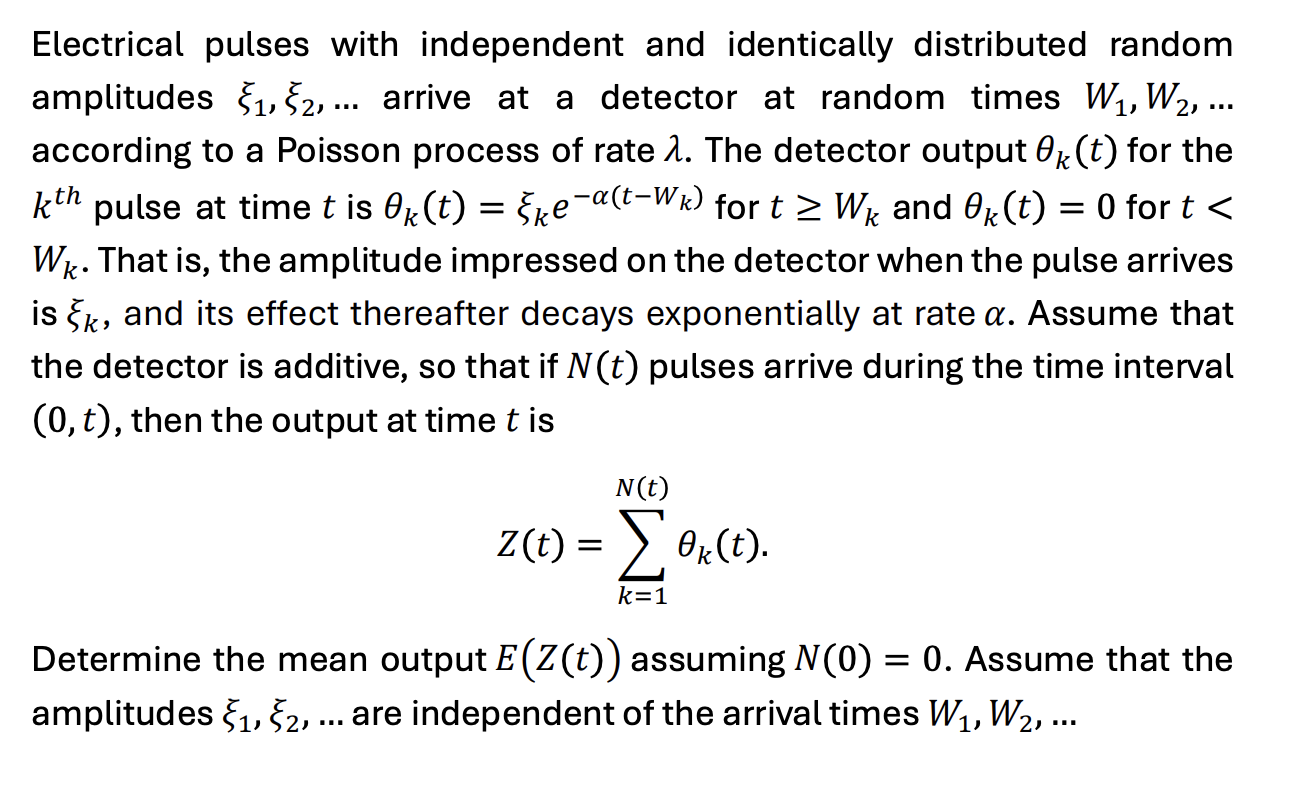Home /
Expert Answers /
Statistics and Probability /
electrical-pulses-with-independent-and-identically-distributed-random-amplitudes-xi-1-xi-2-d-pa265
(Solved): Electrical pulses with independent and identically distributed random amplitudes \xi _(1),\xi _(2),d ...
Electrical pulses with independent and identically distributed random
amplitudes \xi _(1),\xi _(2),dots arrive at a detector at random times W_(1),W_(2),dots
according to a Poisson process of rate \lambda . The detector output \theta _(k)(t) for the
k^(th ) pulse at time t is \theta _(k)(t)=\xi _(k)e^(-\alpha (t-W_(k))) for t>=W_(k) and \theta _(k)(t)=0 for t<
W_(k). That is, the amplitude impressed on the detector when the pulse arrives
is \xi _(k), and its effect thereafter decays exponentially at rate \alpha . Assume that
the detector is additive, so that if N(t) pulses arrive during the time interval
(0,t), then the output at time t is
Z(t)=\sum_(k=1)^(N(t)) \theta _(k)(t)
Determine the mean output E(Z(t)) assuming N(0)=0. Assume that the
amplitudes \xi _(1),\xi _(2),dots are independent of the arrival times W_(1),W_(2),dots